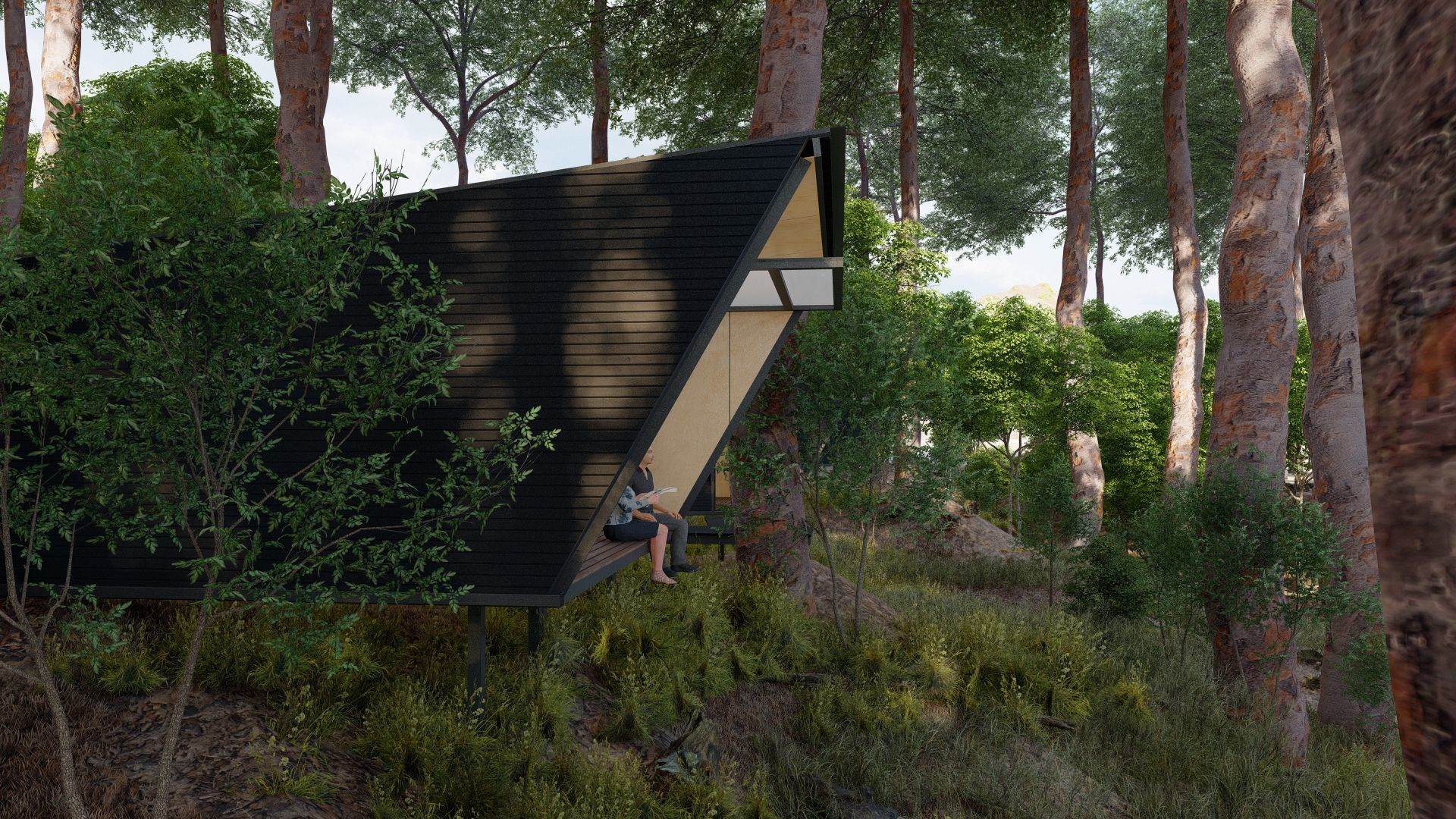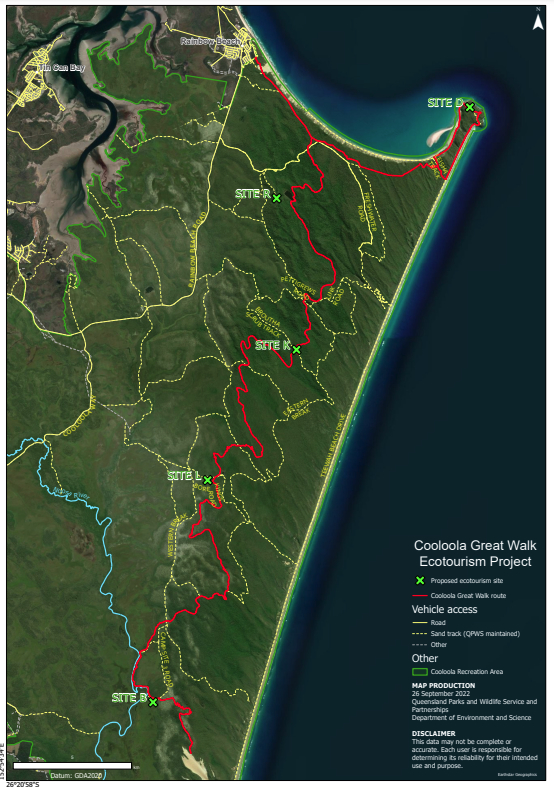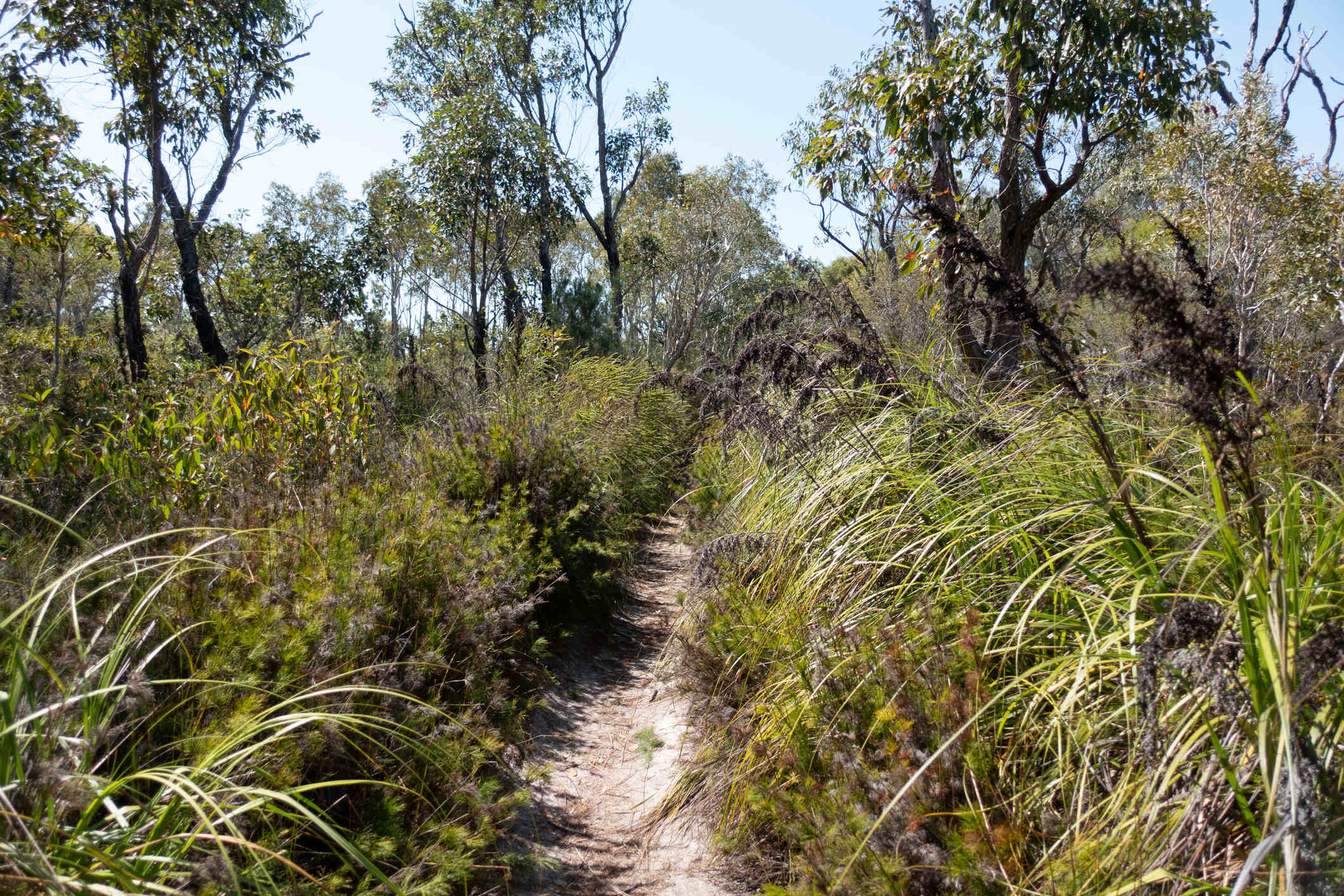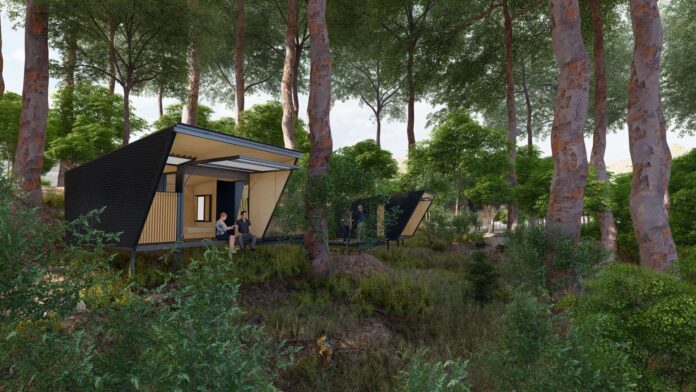An ecotourism proposal featuring guided tours and new cabins promises to offer a “unique experience” in one of the region’s most stunning natural settings.
The Cooloola Great Walk Ecotourism Project is set to establish tours along the central and northern sections of the existing Cooloola Great Walk, a 102km track linking Noosa to Rainbow Beach.
The tours would be supported by five accommodation sites along the trail, with each site to provide light-footprint cabins and amenities including kitchens, toilets and shower facilities.
A spokesperson for the Department of Environment and Science told Sunshine Coast News there had been comprehensive talks between stakeholders since the state government announced that CABN, an Australian company specialising in eco-friendly accommodation, was the preferred tender to deliver the infrastructure along the walk.
“The locations for the proposed accommodation sites were identified through an extensive consultation process with ecological and cultural heritage experts, local Queensland Parks and Wildlife Service staff, CABN and representatives of the Kabi Kabi First Nation Traditional Owners,” the spokesperson said.
“Site selection included ecological impacts, cultural heritage impacts, safety impacts and tourism potential.”
But there is work to be done before the proposal gets the all-clear.
“The project still requires several key environmental approvals to be granted and local government development approvals by Noosa Shire Council and Gympie Regional Council,” the spokesperson said.
“Final details of the accommodation sites have yet to be determined and must form part of CABN’s final detailed proposal.
“The design, construction and operational aspects of the proposed accommodation must meet the (eco-tourism) requirements of DES.
“DES will require the final proposal to identify, avoid and mitigate potential risks to the ecological, cultural heritage and recreational values across the national park.”

That includes: minimising clearing of vegetation for accommodation sites and avoiding clearing of ecologically and culturally significant large trees; structure design and construction must reduce impacts on threatened species, unique ecosystems, wetlands and aesthetic values; incorporation of appropriate, nil-impact waste and wastewater management systems; ensuring long-term use of the area does not increase pest, weed and fire risks; and incorporating aspects of local cultural heritage into design and commercial operations, in consultation and cooperation with Traditional Owners.
Costs associated with the design, construction and operation of the project would be borne by CABN.
The department said there were several opportunities for members of the community to have their say on the proposal.
Online community consultation in mid-2019 generated 44 submissions.
There was also consultation at Rainbow Beach and Noosa in mid-2021, when DES invited more than 130 conservation groups, tourism industry bodies, local businesses and local and state government representatives to have their say.
Public submissions about the proposal have been open since mid-2021 and the department said it was considering all submissions.
DES has also met with concerned members of the public, conservation groups and local and state government representatives to provide further information.
The department has made some changes to the project plans, due to community concerns.
“Following feedback about two proposed walker accommodation sites near Poona Lake and another on the Noosa River, DES recommended relocation of these sites to less ecologically sensitive areas,” the spokesperson said.

The department has also been in key talks with the Traditional Owners of the land.
“The Queensland Government is committed to ensuring the proposed project benefits the Kabi Kabi First Nations People and their aspirations for management of their Traditional Country,” the spokesperson said.
“DES and DTIS (Department of Tourism, Innovation and Sport) have been proactively consulting with the Kabi Kabi First Nations Traditional Owners on the proposed project since 2018.
“Input from the Kabi Kabi First Nations Traditional Owners has been, and will continue to be, instrumental in the approval process.
“The Queensland Government understands that a Kabi Kabi applicant has conducted substantial consultation with the broader Kabi Kabi community to ensure that their engagement with the state is consistent with the views and interests of that community.”
Engagement with the Kabi Kabi First Nations People culminated in an Indigenous Land Use Agreement authorisation meeting held in November, when voting overwhelmingly supported the ILUA for the proposed project.
“The ILUA is currently undergoing a three-month community public notification period, ending May 15, prior to final registration,” the department spokesperson said.
Meanwhile, a CABN spokesperson said the project would bolster eco-tourism in the region.
“The walking experience will offer guests a unique opportunity to engage and immerse themselves in the iconic Cooloola region, learning about the Indigenous, cultural significance of the land through guided walking tours,” they said.
“The low-footprint, low-impact project has numerous benefits for the Great Sandy National Park, including contributing to the park’s long-term environmental, cultural and financial wellbeing.
“This project will have a positive effect on the local economy by attracting new tourists, in a managed way, who may not otherwise visit this part of the Great Sandy National Park.
“It will increase sustainable tourism in the region and connect domestic and international visitors with the Cooloola Great Walk.”

The CABN representative said Traditional Owners would have significant influence on the project.
“The Kabi Kabi will have complete oversight and development of the cultural and historical education throughout the Cooloola project, from artwork and storytelling in the accommodation through to the guided walks and other guest experiences that connect travellers with country,” they said.
It’s expected locals will benefit from jobs relative to the project.
“A critical aim of this project is for the accommodation and guided walks to provide the Kabi Kabi people with opportunities for training and long-term, secure employment,” the CABN spokesperson said.
They said the proposed concepts for the accommodation were intended to be as eco-friendly as possible.
“The eco-camps will be carefully designed to be as low-impact and sustainable as possible, following detailed environmental assessments on the ecology and biodiversity of the region,” they said.
The DES’ Parks and Forests website said construction of the eco-camps could be completed early next year, depending on final approvals being granted.
Project information is available on the DES website.
Help keep independent and fair Sunshine Coast news coming by subscribing to our FREE daily news feed. All it requires is your name and email at the bottom of this article.





